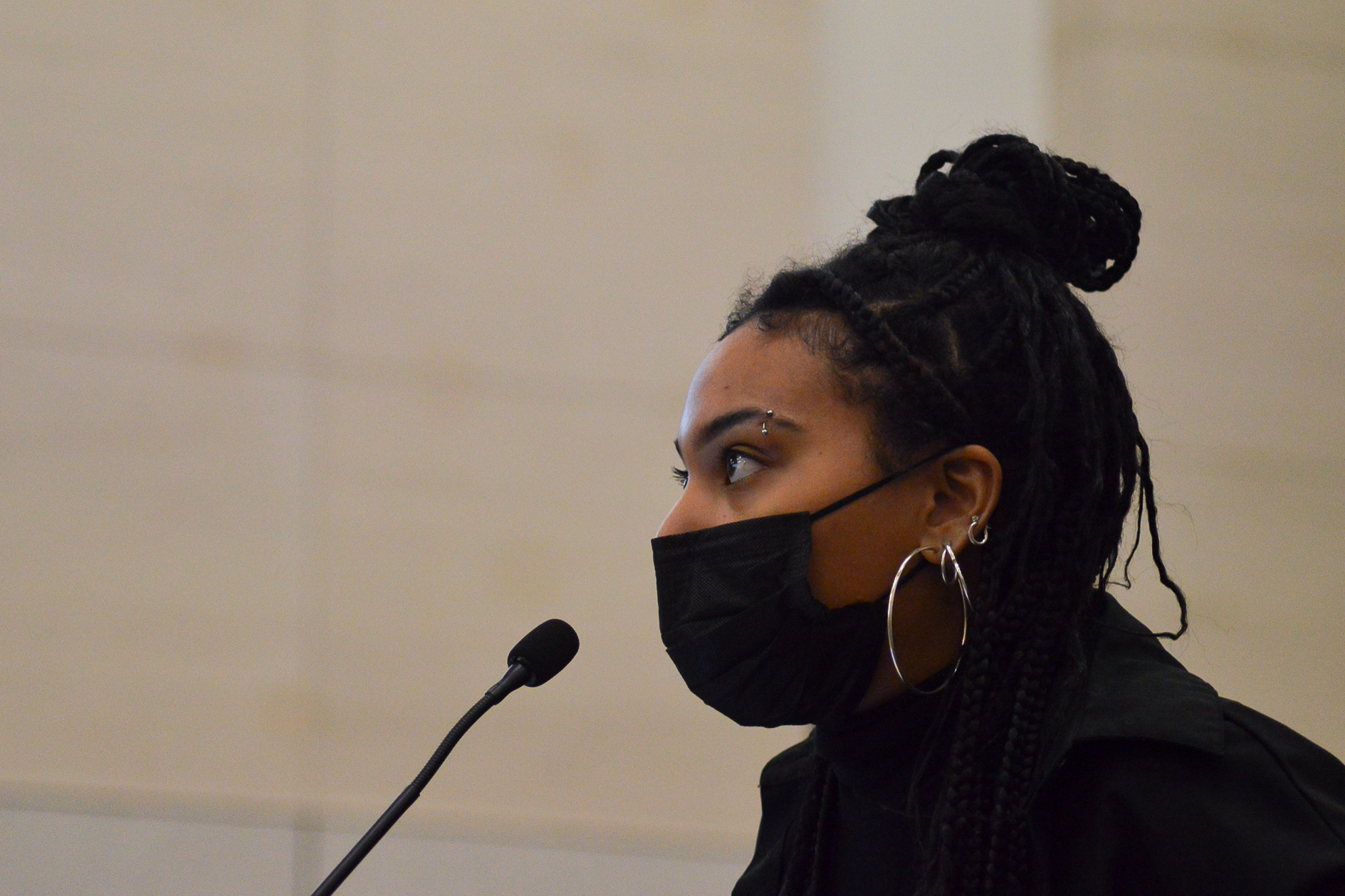College Park’s Restorative Justice Commission gave its one year update to the College Park City Council Tuesday where it emphasized the importance of incorporating residents from the city’s Lakeland neighborhood into the commission.
The commission was created in 2022 with the goal to promote reconciliation and restoration for the Lakeland community, a historically Black community in College Park damaged by urban renewal from the 1960s to 1980s. Urban renewal caused the displacement of 104 out of 150 households in the community.
The commission was formed with a focus on the city, but consultants are pushing for the commission to focus on Lakelanders themselves — people the consultants identified as directly impacted by urban renewal. By this definition, two Lakelanders currently serve on the commission. Two others who live in the Lakeland community also serve on the commission, which has 21 members.
“We were put in a place of asking basically 19 commissioners to create reparations for something that they didn’t really experience,” Claudia Barragan, one of the three consultants hired to work with the Restorative Justice Commission, said.
[Special election for new College Park mayor slated for May 6]
City Racial Equity Officer Kayla Carter said one of the largest struggles with the commission is teaching members what restorative justice actually entails, which has led to slower progress on commission goals than originally planned.
“You can’t just be practicing restorative justice on this commission. You have to be a practicing practitioner of restorative justice, through your whole being,” Carter said.
The Restorative Justice Commission asked the city to request the Maryland-National Capital Park and Planning Commission historically designate the entire Lakeland community.
Currently, the only part of the Lakeland community with historic designation is the Lakeland School, a former secondary school for African Americans. Barragan said the lack of historical designation for the community is hurtful.
Additionally, the commission said it filed a research consultant form with the city to conduct research on the history of the African American community and urban development in Lakeland.
[PGCPS creates survey system, equity dashboard to highlight achievement gaps]
The commission formed three committees since its founding on community engagement, truth and reconciliation andrestorative and transformative justice.
Barbara Schreiber, the truth and reconciliation committee consultant, said faster is not always better when it comes to figuring out the reconciliation process. The Lakeland population in the city has been dealing with the impacts of urban renewal for years, and restorative justice needs to be approached with care, she said.
“You’re talking about an older population of folks who have been at this for a very long time,” Schreiber said. “These are things that folks are involved and invested in, but we’re also talking about years of having done this work, and having it not bear fruit.”
Leah Williams, the community engagement committee consultant, said the committee is focusing on listening to people impacted by urban renewal. In December, the commission hosted a conversation with current Lakeland residents.
“Lakelanders are strong; Lakelanders know their history, they know what they desire, and what they are looking for from this commission,” Williams said.



